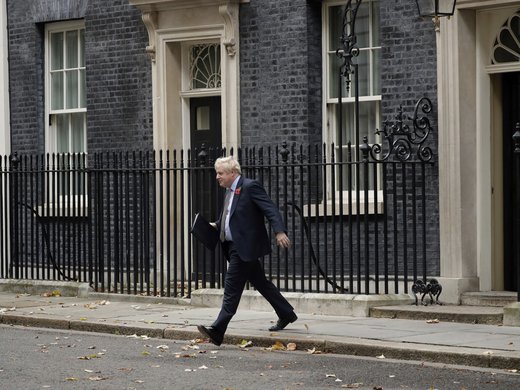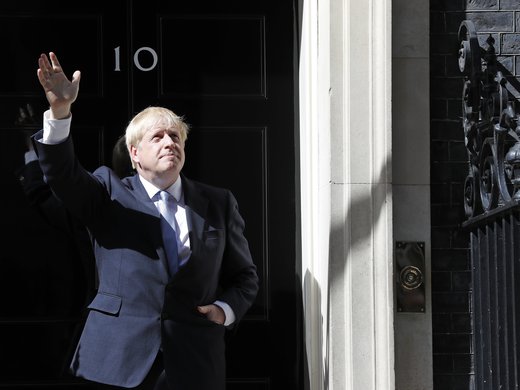On June 24 2016, it was confirmed that the United Kingdom had voted to leave the European Union. In the days that followed, many observers are asking the same question: what now? To help us understand the legal and constitutional impacts of the referendum vote results, we sit down with Markus Gehring, incoming Deputy Director in CIGI’s International Law Research Program directing the international economic law research stream.
CIGI: The UK has voted to leave the EU. Is this decision legally binding?
Markus Gehring: The Referendum Act was a non-binding referendum. The UK government, which legally has the ultimate say on whether to invoke Article 50 of the EU Treaty, is not bound by this referendum’s outcome. This is the legal perspective. But of course, politically, given the high level of turnout, it’s very difficult for any one political party to completely reverse the referendum results without, for example, asking the people again in a second referendum or in a general election. But there’s nothing in the law that would either bind the UK Parliament or even the government.
CIGI: What are the legal and constitutional impacts of the referendum results?
Gehring: The legal and constitutional impacts could be quite profound. If the government decides to follow the instructions from the referendum and trigger the Article 50 procedure, then the government would embark on exit negotiations to leave the EU and those would have to be concluded within two years. If no agreement is reached within that timeframe, the UK would then cease to be a member of the EU.
Constitutionally, this is quite difficult because the current administration was campaigning to remain in the EU and only a small minority of current MPs actually campaigned for Brexit. This means that almost inevitably, there needs to be a new general election. In my reading of the constitutional law of the UK, it would be perfectly legitimate for a new government that campaigned on the basis of reversing the referendum decision to do exactly that. There is, in my view, nothing in the EU treaties which says that once you’ve triggered the Article 50 button, you cannot reverse that decision, though legal opinion is divided on this issue. The government of the UK would be in the driving seat in terms of, for example, stopping the negotiation and declaring to the other Member States the intent no longer wishing to pursue the Brexit negotiations.
CIGI: What about constitutional impacts within the UK?
Gehring: Internally, the matter is slightly more complicated because two parts of the UK, namely Northern Ireland and Scotland, voted to remain in the EU. While politically that is very important, constitutionally we need to remember that both administrations derive their power from the government in Westminster. The parliament in Westminster, the UK Parliament, can therefore always override these administrations when it comes to important matters of state.
CIGI: What is the status of legal agreements reached within the UK that were signed before Brexit?
Gehring: Certainly the UK is party to a number of international agreements which would be largely unaffected. There is a bit of a question mark behind agreements that were negotiated under the exclusive competence of the EU, which has exclusive competence over natural marine resources and common commercial policy, i.e. international trade. In those agreements, the UK merely participates and the question mark remains as to whether it could just rely on those trade deals that were concluded by the EU. My cautious answer is, that it would be in the interest of all trading partners to come to a negotiated solution for this conundrum, so that the UK could still benefit from some of the trade deals, but with the consent of the rest of the EU countries and of course the partner countries.
CIGI: Canada recently ratified and signed CETA. With the UK out of the EU now, what are the legal consequences and remaining obligations under this agreement?
Gehring: With the agreement of all trading partners (the EU, the UK and Canada) the UK could participate in this agreement. At the moment, CETA hasn’t been ratified on the EU side and the ratification process is complicated if Member States don’t follow the current EU Commission advice which suggests that all parts of CETA fall under the new exclusive competence on trade. We’re expecting the provisional enactment of provisions that are under the exclusive competence of the EU very soon and potentially its EU ratification. The UK would only benefit from that provisional enactment or exclusive EU ratification as long as it remains a Member State of the EU. After two years, this provisional enactment would no longer benefit the UK if Article 50 has been invoked. On the other hand, the UK would then be free to conclude its own separate trade deal with Canada if it so wishes.
If the treaty had entered into force through the ratification by all 28 Member States and the EU (should the Member States prevail in the recent discussions with the Commission) or even the EU alone, the situation would be slightly different. There would perhaps be an easy argument to say that all should agree to let the UK still participates in this trade agreement. With a preliminary enactment, I don’t think the EU would have the flexibility to still benefit a non-Member State once the UK had left the EU.
CIGI: Similarly, to what extent does Brexit impact TTIP, the proposed trade agreement between the European Union and the United States?
Gehring: For TTIP, the negotiations would continue and the UK would continue to act in the Council. It cannot actually block the negotiation by just not turning up to a Council meeting. Whether the UK would ever benefit from an agreement with the US is very doubtful because Member States will want to make TTIP a deal between the EU and the US. Now that we know the UK has an intention to leave, it would make it very difficult to include the UK actively in those negotiations in my view. Legally speaking, nothing changes up to the point of actual Brexit.


